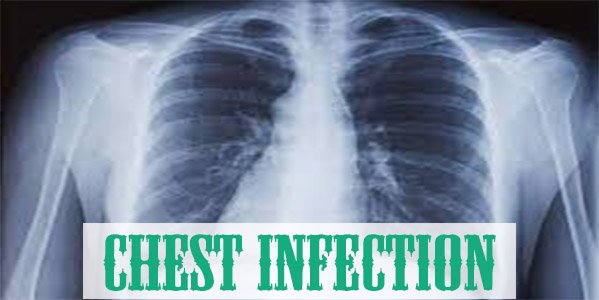A chest infection is a medical condition that causes respiratory illness that affects the lower section of the lungs. The most affected areas are windpipe, bronchi, and lungs and hence these all are the part of the lower respiratory tract.
Bronchitis and pneumonia are the two most frequent kinds of chest infections that can happen to anyone. The medical condition can cause severity that ranges from minor, moderate to severe. Chest infections are common especially after an individual had cold or flu, caused during the season of autumn or winter.
Common signs and symptoms of chest infection
- Persistent cough
- coughing in the chest (wet or phlegmy)
- wheezing, coughing up yellow or green mucus, shortness of breath, chest discomfort, fever, headache, muscle aches and pains
- feeling exhausted or extreme low energy
A cold, also known as an upper respiratory tract infection (URTI), usually begins with a clogged and/or runny nose, sneezing, and occasionally a slight elevated temperature (fever). You’ll probably develop a cough that’s dry and severe, but it could also sound like you’re coughing up a lot of phlegm (sputum), which you may cough up. You may also feel weary and achy, but these symptoms of a chest infection are usually minor, and you’ll be able to go about your daily activities.
Chest infections can also start with these symptoms, but if these are your only symptoms, you don’t need to see a doctor. People with long-term lung diseases such as chronic obstructive pulmonary disease (COPD) and bronchiectasis are the sole exceptions. These people are more likely to suffer serious complications as a result of their illnesses.
Vulnerability to the disease
A chest infection is an illness that affects the lungs of an individual, either in the larger airways (bronchitis) or the tiny air sacs (pneumonia). It results in the buildup of pus and fluid (mucus), and the airways become enlarged in size making it abnormal, thus leading to difficulty in breathing.
People of all ages no matter male or female are susceptible to chest infections, the most vulnerable are young children and the elderly, as well as sick people and smokers. For some folks, a chest infection can be fatal.
Caring tips at home if you have chest infection
Many chest infections fortunately are not more serious hence can be treated at home also:
While you are recovering at home, you can get your symptoms improved by doing the following:
- Getting enough sleep
- Drink plenty of fluids to avoid dehydration and loosen mucus in your lungs, making coughing easier.
- Painkillers, such as paracetamol or ibuprofen, are used to treat headaches, fever, and aches and pains.
- Drinking a warm honey and lemon drink — to soothe a sore throat caused by coughing.
- While sleeping, prop your head up with extra pillows – Using an air humidifier or inhaling steam from a basin of hot water to make breathing easier – help relieve your cough (because to the risk of scalds, hot water should not be used to treat small children with coughs)
- Stopping smoking
- To reduce your temperature and treat any aches and pains, take over-the-counter drugs such ibuprofen (Advil) or acetaminophen (Tylenol).
- To assist release mucus and make coughing easier, take over-the-counter decongestants or expectorants.
- When sleeping, avoid lying down flat. Mucus may collect in your chest as a result of this. At night, use extra pillows to elevate your head and chest.
- Coughing can be relieved by using a humidifier or inhaling steam vapour
Are vaccines available for chest infection, are they effective?
Yes, some forms of chest infections can be prevented with the use of vaccines. Vaccines against one of the most frequent kinds of bacterial pneumonia are available for some individuals, such as the elderly and people with chronic illnesses. Children receive a separate vaccine. Because influenza can be aggravated by pneumonia, it is recommended that the elderly and others with chronic diseases get a flu shot every year before winter arrives. You may consult your doctor.
Time duration to recover from chest infection
Most symptoms of a chest infection go gone in 7 to 10 days, though a cough might continue up to three weeks. If your symptoms haven’t improved after taking prescribed dose and care or have gotten worse during this period, contact your doctor immediately.
